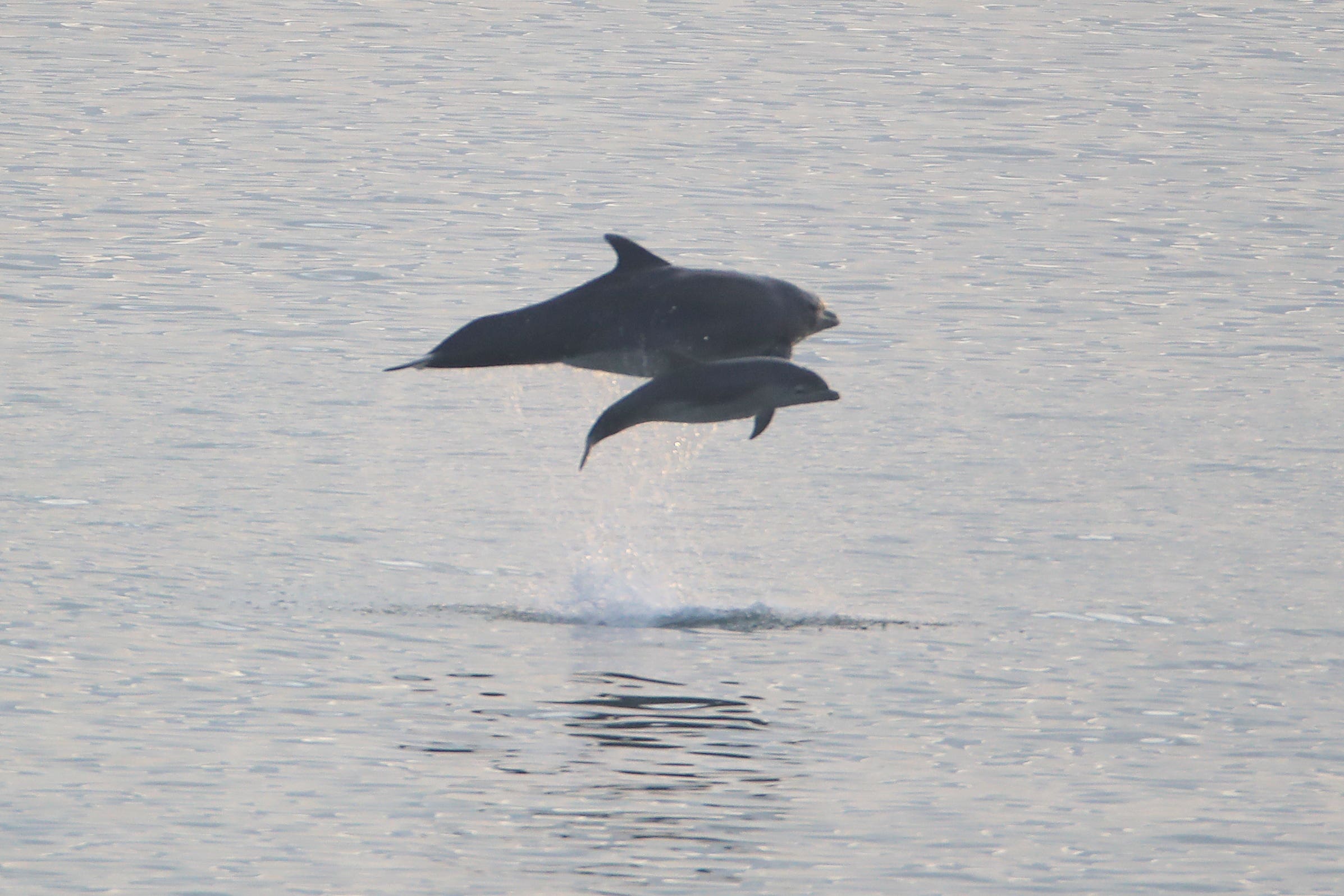Dolphins ‘shout’ over loud underwater noise to work together – study
The intelligent, social animals rely on whistles and echolocation to hunt and reproduce.

Your support helps us to tell the story
From reproductive rights to climate change to Big Tech, The Independent is on the ground when the story is developing. Whether it's investigating the financials of Elon Musk's pro-Trump PAC or producing our latest documentary, 'The A Word', which shines a light on the American women fighting for reproductive rights, we know how important it is to parse out the facts from the messaging.
At such a critical moment in US history, we need reporters on the ground. Your donation allows us to keep sending journalists to speak to both sides of the story.
The Independent is trusted by Americans across the entire political spectrum. And unlike many other quality news outlets, we choose not to lock Americans out of our reporting and analysis with paywalls. We believe quality journalism should be available to everyone, paid for by those who can afford it.
Your support makes all the difference.Dolphins shout to each other when trying to communicate in increasing underwater noise levels, research suggests.
The animals are social and intelligent, and rely on whistles and echolocation to hunt and reproduce.
This means noise from human activity such as drilling and shipping could affect the health of wild dolphin populations.
However, the new study indicates dolphins may change the volume and length of their calls when trying to work together when it is louder underwater.
Despite their attempts to compensate, despite being highly motivated and the fact that they know this co-operative task so well, the noise still impaired their ability to successfully co-ordinate
First author Pernille Sorensen, from the University of Bristol, said: “Those same reasons that make sound so advantageous for animals to use also make them susceptible to disturbance from noise in the environment.
“Within the last couple of decades, we’ve seen a dramatic increase in human-made noise, and noise pollution in the oceans is no exception.”
The two dolphins observed in the study, Delta and Reese, were put in an experimental lagoon with suction-cup sound recorders that captured the sounds they made.
They had to work together to both press an underwater button, placed at either end of the lagoon, within a second of each other.
They were released from a starting point during each experiment, and for certain trials, one of the dolphins was held back for five to 10 seconds while the other was released immediately.
In the delayed-release trials, the dolphins had to rely solely on vocal communication to co-ordinate the button press.
Researchers found that when increasing levels of noise were played from an underwater speaker, both animals compensated by changing the volume and length of their calls to co-ordinate the button press.
From the lowest to highest levels of noise, the dolphins’ success rate dropped from 85% to 62.5%, the study found.
As well as changing their calls, the animals changed their body language.
The study found that as noise levels increased, they were more likely to re-orient themselves to face each other, and they were also more likely to swim to the other side of the lagoon to be closer.
Miss Sorensen said: “This shows us that despite them using these compensatory mechanisms, their communication was impaired by noise.
“Our work shows that despite their attempts to compensate, despite being highly motivated and the fact that they know this co-operative task so well, the noise still impaired their ability to successfully co-ordinate.”
Although the research was conducted with dolphins living in human care, researchers suggest human-generated noise could also have detrimental effects on wild dolphins.
Co-author Stephanie King, associate professor at the University of Bristol, said: “If groups of animals in the wild are, for example, less efficient at foraging co-operatively, then this will negatively impact individual health, which ultimately impacts population health.”
The findings are published in the Current Biology journal.